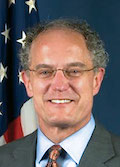April 2020, Vol. 247, No. 4
Features
PHMSA Issues Notice of Discretion Concerning Operators and COVID-19
P&GJ Staff Report
PHMSA told pipeline operators on March 20 that the administration recognized the constraints they face in the wake of the Coronavirus (COVID-19) outbreak, adding that certain employees may be required to work outside of their classification.

“Limited personnel resources and the ongoing need to meet operational and maintenance needs may necessitate actions by personnel that may not fully meet federal operator qualification (OQ), control room management (CRM), and employment drug testing requirements,” Alan K. Mayberry, PHMSA associate administrator for Pipeline Safety, said in news release.
The directive specifically addressed hazardous liquid and gas pipeline, underground natural gas storage and liquefied natural gas operators.
Federal regulations in Title 49 Code of Federal Regulations (C.F.R.), Subpart N of Part 192, Subpart H of Part 193, and Subpart G of Part 195, require operators to ensure, through evaluation or training, that each worker performing operation or maintenance activities is either qualified under the operator’s written OQ program or has demonstrated capability to perform assigned functions.
Sections 192.631(d)(4) and 195.446(d)(4) and (h) of the regulation also require operators with controllers working in control rooms to implement programs to establish and follow certain hours-of-service and to conduct specialized training programs for pipeline controllers.
Additionally, Part 199 of the regulation requires pre-employment and random drug testing for workers who perform certain activities known as “covered functions.” See 49 C.F.R. § 199.105(a) and (c).
“PHMSA understands that some pipeline operators are finding it extremely difficult to meet one or more of these regulatory requirements because of personnel and resource constraints due to the national emergency and have sought temporary relief as they develop strategies and alternatives for maintaining normal operations and protecting the health and safety of their personnel and the public,” Mayberry said in the news release.
This notice advised affected operators that PHMSA does not intend to take any enforcement action with regard to OQ and CRM requirements, and will consider exercising its enforcement discretion concerning drug testing requirements.
“Operators are encouraged to fully use the flexibilities already afforded by Part 199, regarding pre-employment and random drug testing”, the news releases said. “Operators are permitted under the Part 199 regulations to schedule the date, time and location of the pre-employment drug test. Moreover, the regulations allow for random drug testing to be spread reasonably throughout the calendar year.”
PHMSA said it will consider using its enforcement discretion with regard to requirements found in 49 C.F.R. § 199.105(a) and (c).
Operators who are unable to comply with these regulations were directed to maintain documentation explaining what specific requirements are not being met, how the non-compliance is related to COVID-19, and what alternative measures are being taken to ensure safety.
In addition to these three specific areas, PHMSA said it understood there may be other regulatory requirements under the federal pipeline safety laws in 49 C.F.R., Parts 190 through 199 that pose compliance challenges for operators during this national emergency.
“In such cases, it is important that operators adequately document any such issues and communicate promptly with their regulator about them,” the news release said. “PHMSA will exercise discretion in its overall enforcement of other parts of the pipeline safety regulations with the intent of providing operators with the flexibility to maintain normal operations while ensuring public safety and protection of the environment.”
For intrastate operators regulated by state authorities, PHMSA said it will not object to waivers, special permits, stays of enforcement or similar measures granted by state authorities to pipeline operators for noncompliance due to COVID-19 with State regulations equivalent to the federal regulations.
PHMSA stressed that the directive applies only to “operators faced with limited resources” as a result of the national emergency and “does not relieve them from complying with any other applicable provisions of the federal pipeline safety regulations and acting reasonably to use trained, non-impaired workers to perform operations, maintenance and control-room tasks.”
Furthermore, PHMSA said, pipeline operators affected by the new notification remain fully responsible for the safe operation of their systems and maintaining the capability to detect and respond to critical pipeline safety issues and adequately respond to pipeline emergencies.
PHMSA said the directive will remain in effect until further notice.





Comments